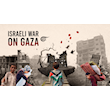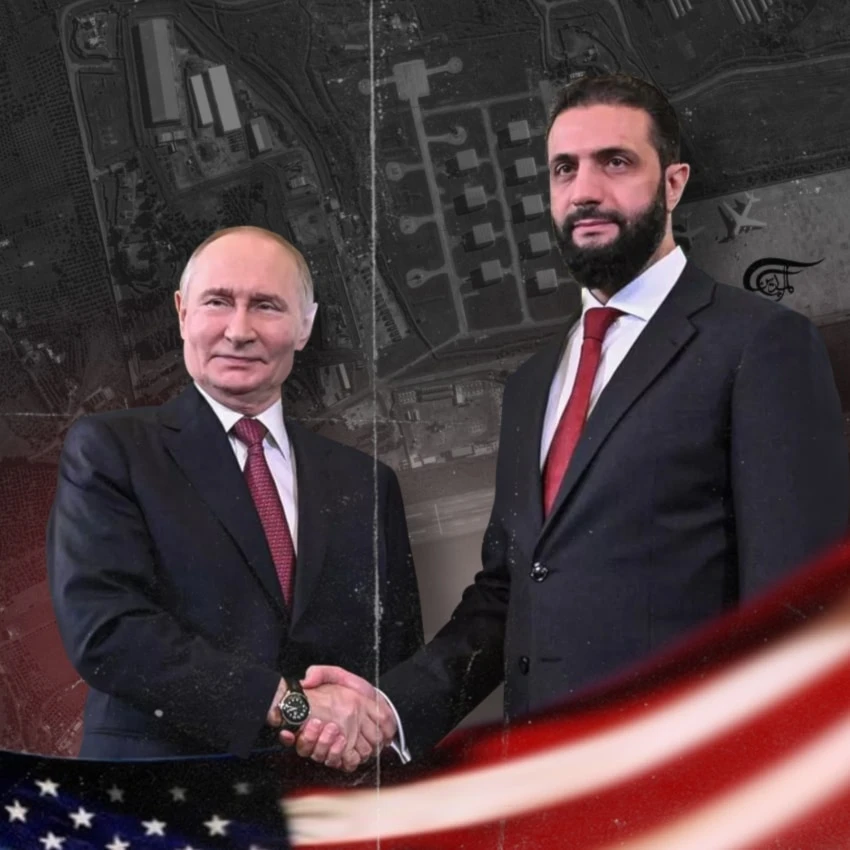A letter from a Gaza hospital: we have witnessed a Holocaust
Writing in Gaza today is not a process of brainstorming, narration, analysis, or justification. It is much more than all of that: for one to employ all of their power, concentration, and resilience to write while being bombed is a form of tragedy.
-

A letter from a Gaza hospital: The holocaust is alive and well
Today, I weave together these lines in the shade of a tree in one of Gaza's hospitals, stretching my legs out with my laptop on my lap. I borrowed a charging cable from some journalists sitting near me. They are doing just as badly as me if not worse. What some of them are going through is indescribable. Some had their entire families perish under the rubble, and some were documenting the holocaust before they were surprised to find out that the wounded and martyred were members of their families.
Just a few days earlier, on October 23, 2023, my friend, journalist Jamal al-Fakaoui, was sitting next to me as we shared food and water. He went to check on his family at night, and at dawn, we received the news that he and his entire family were killed after their house was bombed. None of them survived.
Writing in Gaza today is not merely a process of brainstorming, narration, analysis, or justification, it is much more than all of that; for you to recollect your strength, focus, and resilience to be able to write while under heavy aerial bombardment is a form of tragedy. There are two things that motivate me to write: the first one being that I want an escape from all the scenarios constantly playing in my head, from the scenes I saw at the emergency room and the mangled limbs of children in the morgue, and the second being that I could be martyred any moment, and I do not want the scenes stuck in my memory to remain there without me putting them into words and transcribing these images into text to serve as a live testimony to what I have witnessed.
I visited my home earlier, and perhaps this visit served as an additional motive for me to write, vent, and take my mind off what was happening. Ever since the holocaust started, I left my house, especially after they started targeting journalists, their homes, and their families without prior notice. Some of my colleagues and friends, as well as their families, were martyred. I decided to leave. I do not want to jeopardize my family and children who might lose their lives for the crime of having a dad who is a journalist. This is the only tactic, for the bombardment on Gaza is indiscriminate, and there are families who were buried under the rubble without having a member who is a journalist, writer, or even politician.
The emergency visit I paid to my home came after my wife called to inform me that our neighboring house was bombed without prior notice, that its residents were still under the rubble, and that my two little boys, 6-year-old Youssef and 5-year-old Yahya could not stop crying, and they wanted me to be there to feel safe. When I came into the house, there were no windows, they were all broken and had flown out of place. It was only due to God's mercy that no one was injured. Ever since the war started, my family has been residing in the kitchen because it is in the middle of the house and only has one small window with the fridge in front of it so that if it shatters during any air strikes, no glass shards would fly and injure anyone, and it seems that it worked this time.
I never experienced this subjugation before, to be standing in the middle of your home, embracing your six children as their mother looks at you while you have no answer. You are looking around, not knowing what to do or say; they see me as this strong father who always has solutions to any problem they encounter, always doing everything they need me to and answering any questions they have, but this time I was helpless. I sat on the floor and prayed to God not to cry before them. An hour and a half ago, I was crying over my friend, a doctor with whom I had spent my years studying abroad. He was martyred alongside his wife. I hugged my children tightly as limitless scenarios started playing in my head: my home could be next. As I was spiraling, I was interrupted by my little Yahya, who told me that when the house next to ours was bombed, "I cried and started looking for you frantically. Do not leave the house, I get scared alone." Youssef interjected to tell me that he saw several martyrs and people running in the street. "I am not scared. I am strong, I am brave," he said.
I spent around 15 minutes in my house. They felt like an eternity. I had to decide what to do next, and I had to completely shed all the fatherly feelings and fear and all I was going through. I had to put everything on hold in order to be realistic, and I suggested dividing the family: some would stay at home, some others would go to our relatives', and some others would go with me. My wife completely rejected this proposal, saying: "I will stay together with my children. We either die together or live together. We do not anyone going through the anguish of losing someone." I complied under the condition that I leave and go back to the hospital.
How could I leave? How do I leave them when this could be the last time that I see them or they see me? This could be our very last time together as a family. What do I tell Youssef and Yahya after I had come because they were terrified of the bombing that they had experienced firsthand? How could I exit through the door; how would I get over the moment I turned my back to them and closed the door behind me? What about my daughters? I mustered up as much strength as I had left, I hugged them, kissed them one by one, and I turned around before leaving the house. I was haunted by Yahya and Youssef's looks that were loaded with pleas for me to stay and fear of being alone, without their dad, they were loaded with feelings and words that are indescribable, and until the end of my life, the questions of "what were they thinking at that moment?" and "what was left of my fatherly image they had of me in their mind?" will haunt me to the grave.
I took all of those questions and scenes and I went back to the hospital. I passed by the full emergency room; the waiting room was full, the ICU was full, all the beds were occupied, and some ambulances were no longer stopping at the entrance to the ER but were instead directly going to the morgue. I went to the morgue, and it seemed that fear of death was no longer a thing there. People got over death. I saw a man in his 70s that I knew well. He was my high school teacher. I asked him what he was doing there, and he resiliently said "I am waiting to shroud my son and grandson to bury them." His phone rang as I was there, and he told the called: "Tell your brother's wife's family to hurry up and pick up her body."
A car that was heavily damaged by the bombardment but not enough to render it nonoperational, for it was resilient like the people of Gaza, he got in the front seat, tightly hugging his grandson after putting his son in the back seat, and he left. The image is still stuck in my head, and I cannot get it out.
To complete this live testimony, I must take a moment to talk about two other scenes. When I began writing, I heard a loud and intense rumble, and suddenly a barrage of rockets was launched from a nearby launcher. I followed the news and learned that they fell in "Tel Aviv," and the Iron Dome failed to intercept them. Some of them hit a house. I felt a surge of pride and could feel the blood flowing in my veins - that was the first. The second scene was the cheering of people, their joy, their ululations, and their applause; how they were cheering on the rockets as they were gliding over Gaza while praying for the resistance. These people were lying on the ground with nothing but the stars in the night sky as their cover, celebrating the martyrdom of their loved ones, standing in long queues to get a sip of water or some bread, suppressing their sorrow, and welcoming the world's hostility with a resilient smile with their mourning attire still on, and all of that could not break their stride.
These people make up the environment that birthed the Resistance and the pillar propping it up as the enemy thinks that bombing them will undermine the latter, as it thinks that displacing them will change their mind on the Resistance, drive wedges between them and the Resistance, and as it thinks that its actions will drive them to surrender and wave the white flag. What the enemy and its backers in Washington and Europe do not understand is that these people do not forgive and they do not forgive. They will not forget their right to justice, and they will not forgive without getting it. These crimes and this holocaust being carried out in the Gaza Strip will have grave repercussions for them, and these consequences will keep unfolding over generations to come with a magnitude they cannot fathom.
This is all without exaggeration, for the Resistance has a surplus of these revolutionaries, and if the door for volunteering or conscription opens tomorrow, these revolutionaries will not only cross the separation barrier into the Gaza Envelope, they will make it deep into the occupied Palestinian territories and they will not stop until they make it to Al-Quds.
This is more of a reality backed by what we see on a daily basis than it is a projection; every Palestinian in Gaza whose house was bombed, who was robbed of his family, and who was displaced from his hometown longs for martyrdom, and he is a freedom fighter. This is something that the world backing the enemy has not grasped thus far.

 Thabet Al-Amour
Thabet Al-Amour
 10 Min Read
10 Min Read








